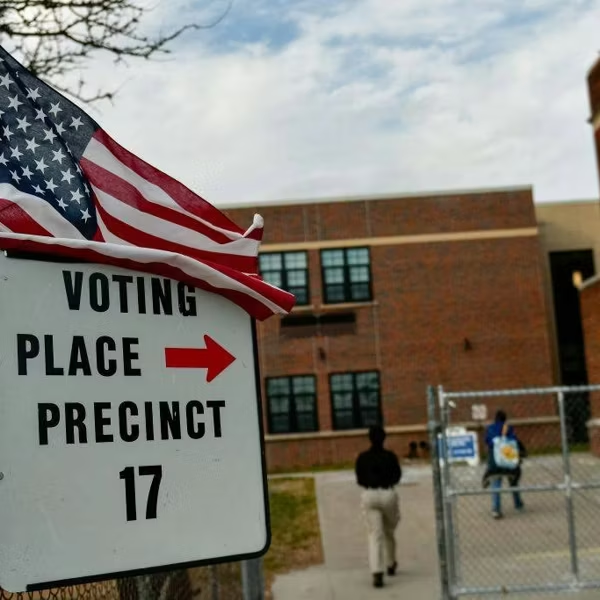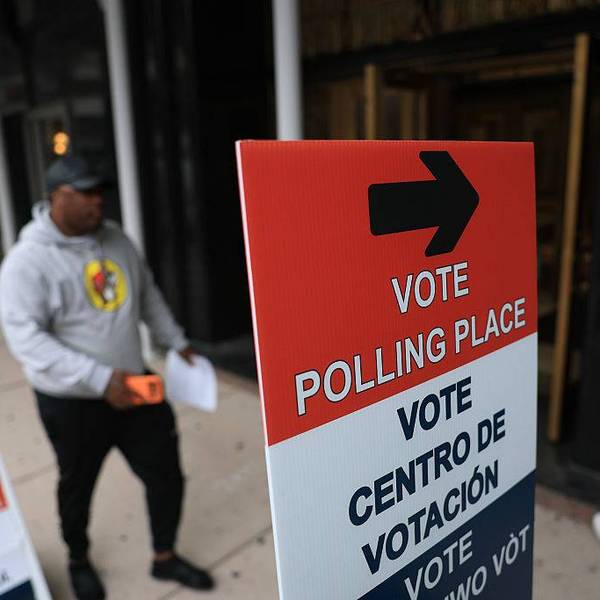Monday saw President-elect Donald Trump secure victory in the Electoral College, while also marking the beginning of the next phase of resistance to his #NotNormal administration.
Trump easily surpassed the 270-vote threshold needed to defeat Democratic rival Hillary Clinton, winning 304 electoral votes with just two Republican electors breaking ranks to give Ohio Gov. John Kasich and former Rep. Ron Paul one vote each.
"This is an uprising--a new resistance starts here today, with the largest 50 state pro-democracy demonstration in American history."
--Ryan Clayton, Americans Take Action
But protests at state capitols across the nation "offered a preview of a tumultuous inauguration and first 100 days of the new administration," the New York Times reported, pointing to progressive groups' developing plans to confront "Trump's cabinet and White House appointments, his pick to fill a vacant seat on the Supreme Court, his financial conflicts of interest, and his stated plan to quickly repeal the Affordable Care Act."
Indeed, Monday's actions--which emphasized the fact that Trump lost the popular vote, despite more than half of Republicans thinking otherwise--"reaffirm that Trump has an absolute lack of mandate," said Anna Galland, MoveOn.org civic action executive director.
Economist and Columbia University professor Joseph Stiglitz similarly pointed out in a piece this week that "like [former President George W.] Bush, Trump is yet another Republican president who will assume office despite losing the popular vote, only to pretend that he has a mandate to undertake extremist policies."
But he will face fierce opposition, if Monday's protests are any indication.
"Together, Americans highlighted Trump's loss of the popular vote by nearly 3 million votes, the extraordinary interference by a foreign government in this election, his business's foreign entanglements, and his patent unfitness for office," Galland said on Tuesday. "These protests and campaigns will also help push Democrats to be bolder and more courageous in their opposition to Trump's and the Republicans' odious policies and nominees--knowing that progressives and MoveOn members will have their backs when they step out to defend our common values and what's best for our nation."
Added Ryan Clayton of Americans Take Action, another member of the so-called December 19 Coalition: "This is an uprising--a new resistance starts here today, with the largest 50 state pro-democracy demonstration in American history. To Mr. Trump, know that every step you take, every move you make, and every civil right you seek to take in the months ahead, our resistance will be the force that protects the freedom of the American people from all threats, foreign and domestic."
Meanwhile, this year's Electoral College brouhaha offered little in the way of "reassurance about the integrity and reliability of our system and the strength of its institutions," columnist Steve Benen wrote at MSNBC.
In fact, Andrew Prokop declared at Vox: "Monday's shenanigans further spotlight the glaring weaknesses in our country's bizarre, anachronistic Electoral College system that have long been evident."
To that end, the New York Times editorial board on Monday called for an end to the Electoral College. "Many Republicans have endorsed doing away with the Electoral College, including Mr. Trump himself, in 2012," the board wrote. "Maybe that's why he keeps claiming falsely that he won the popular vote, or why more than half of Republicans now seem to believe he did. For most reasonable people, it's hard to understand why the loser of the popular vote should wind up running the country."
The Electoral College votes will be formally certified by Congress on January 6.



